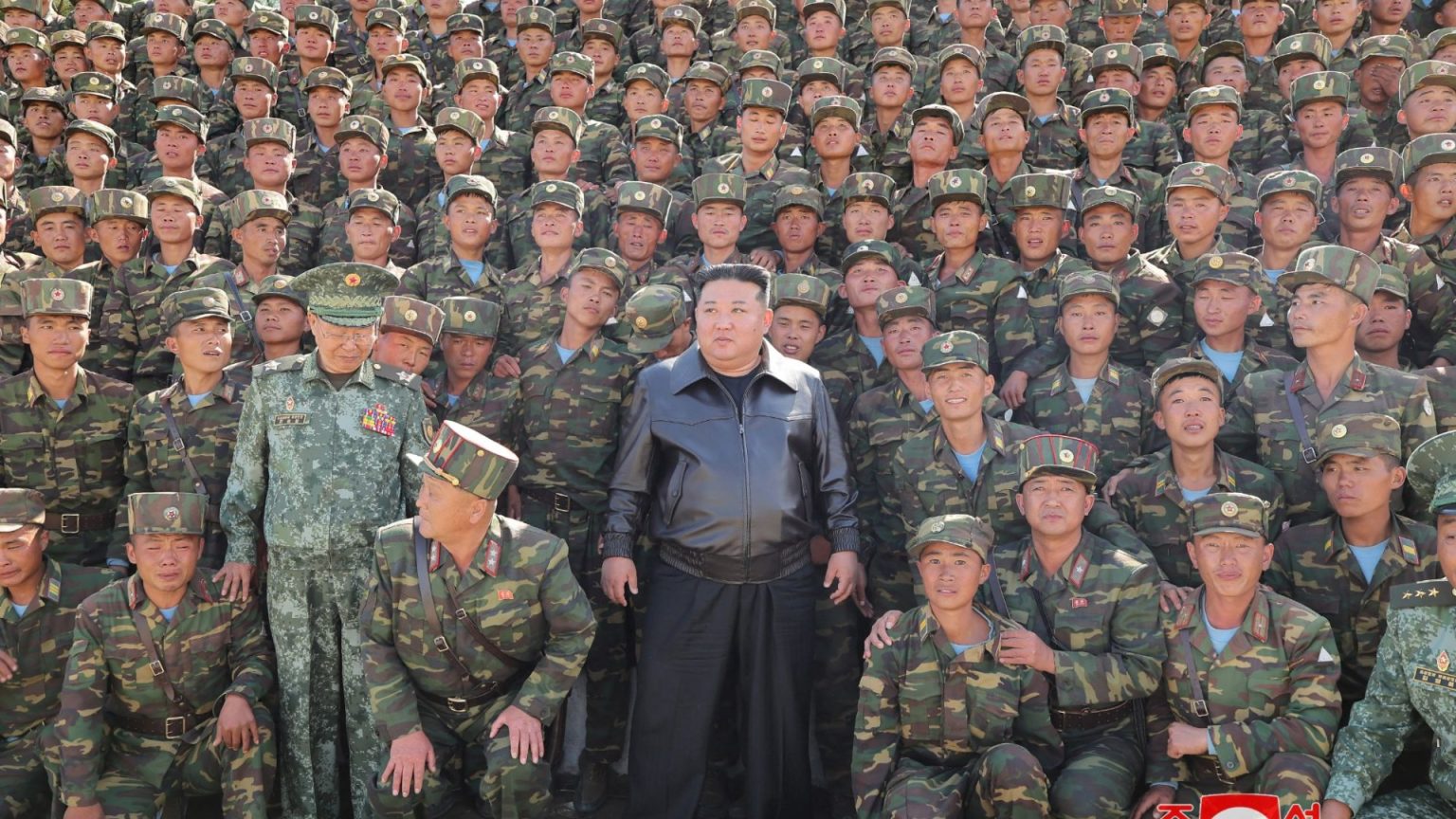The ongoing conflict in Ukraine has seen the deployment of North Korean troops bolstering Russia’s dwindling forces. However, their involvement has been marked by heavy casualties, raising concerns about their potential annihilation. Estimates suggest that over 12,000 North Korean soldiers were initially sent to the Kursk region, and they are currently experiencing an alarming casualty rate of approximately 92 per day. If this trend continues, the entire North Korean contingent could be wiped out within the next 12 weeks. This dire prediction comes from the Institute for the Study of War (ISW), which has been closely monitoring the conflict since its inception. The ISW acknowledges that the ratio of wounded to killed is typically higher in armed conflicts, but the uncertainty surrounding the return of injured North Korean soldiers to combat further complicates the situation.
The North Korean troops are reportedly being utilized as “cannon fodder” by the Russian forces, often deployed in perilous situations with little regard for their safety. Accounts from the frontline depict them being sent on virtual suicide missions, such as running through open fields under heavy fire. A captured diary of a deceased North Korean soldier revealed the indoctrination they receive, emphasizing the “sacred duty” of defending the homeland and a willingness to sacrifice their lives. This sacrificial mentality underscores the potential for continued high casualty rates among the North Korean contingent.
Reports also indicate that the North Koreans are being employed in risky tactical maneuvers. For instance, they attempted to thwart a Ukrainian offensive by storming the village of Makhnovka in an effort to cut off Ukrainian forces. This attempt, however, ended in failure, with reports suggesting the annihilation of a battalion comprising North Korean soldiers and Russian paratroopers. Despite this setback, a smaller contingent of North Koreans managed to briefly occupy the village before being repelled by Ukrainian forces. These engagements highlight the challenging and dangerous situations in which North Korean troops are being deployed.
The deployment of North Korean troops has also extended beyond the battlefield, with reports surfacing of their planned participation in Moscow’s Victory Day parade. This move is seen as an attempt by Putin to project an image of military strength despite significant losses among Russian forces. The inclusion of North Korean troops and a military band in the parade and a subsequent music event underscores the deepening ties between the two nations and Russia’s reliance on North Korea’s military support. This marks the first time North Korean military personnel will participate in such events in Russia, signifying the evolving dynamic of their relationship in the context of the ongoing conflict.
Furthermore, insights from a former North Korean soldier shed light on the potential motivations and vulnerabilities of the troops deployed in Ukraine. Hyun-Seung Lee, who served in the North Korean army in the early 2000s, suggests that many soldiers might be looking for opportunities to escape the conflict. He anticipates potential defections, particularly among younger, less ideologically committed soldiers who may feel exploited by the Russian forces. Lee believes the North Koreans are likely being treated as expendable and used as human shields, leading to disillusionment and a desire to defect. He also suggests that psychological operations by the Ukrainian government could be effective in encouraging defections, given the lack of genuine motivation among the North Korean troops.
The situation of the North Korean troops in Ukraine is complex and fraught with peril. Faced with high casualty rates, dangerous deployments, and potential exploitation, their future remains uncertain. While they are ostensibly fighting alongside Russian forces, their role appears to be one of sacrifice and vulnerability. The possibility of widespread defections and the continued high attrition rate raise serious questions about the long-term viability of their involvement in the conflict. The evolving dynamics of the war and the precarious position of the North Korean troops warrant close observation as the situation unfolds.




